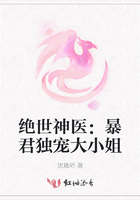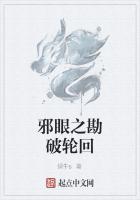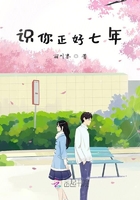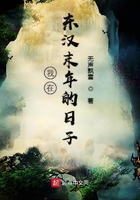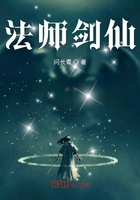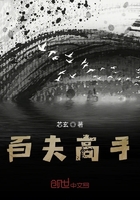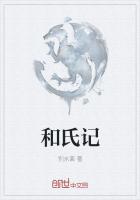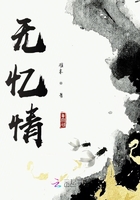灵魂独立的自由言说者——程宝林访谈录
江少川
程宝林,1962年出生于湖北省沙洋县高阳镇歇张村。1980年考入中国人民大学新闻系,长期担任《四川日报》文学副刊编辑。1985年2月自费出版第一本大学生诗集《雨季来临》,引起轰动,成为20世纪80年代大学生诗歌运动代表诗人之一。1994年应美国“杰拉希住宿艺术家计划”之邀访问美国;同年加入中国作家协会。1998年以美国移民局认定的“杰出人才”资格,举家移民旧金山。2005年毕业于旧金山州立大学英文创作系,获艺术硕士(MFA)学位。曾任职《世界日报》新闻编译、《美华文学》季刊责任编辑、执行主编;现为某联邦政府下属外语学院中文教师,兼任家乡荆楚理工学院文学客座教授、《美华文学》杂志社副社长。
程宝林著有中英文诗集、散文集、随笔集,长篇小说等,共22部,其诗歌和散文,被收入100多种选集,包括中小学课外读物。作品被译为英文、越南文和日文发表。其主要著作有:散文集《一个农民儿子的村庄实录》,上海文化出版社2004年版,入选“2004年上海市民最喜爱的20本书”书目;诗集《未启之门》,1988年获“四川省文学奖”;诗集《程宝林抒情诗拔萃》,1995年获“成都金芙蓉文学奖”;散文集《托福中国》,1997年获“成都金芙蓉文学奖”等。2010—2012年,台湾地区秀威科技资讯有限公司出版《程宝林选集》一套。
江少川,华中师范大学文学院教授,华中科技大学武昌分校中文系主任。
江少川:先从你的大学生活说起吧,你是文化大革命后,大学生中自费出版诗集的第一人,在那个年代,激情燃烧的20世纪80年代,一个贫穷的农村大学生,怎么会突发奇想,自费出版诗集呢?请你谈谈筹集经费、出书经过及推销诗集的过程。
一、诗歌就是我的护照
程宝林:现在,回首20世纪80年代初、中期,我仍然认为那是一段国门初开,新鲜的思想和艺术扑面而来,朝气蓬勃、阳光向上的岁月。这段岁月,正好和青春岁月、大学生活交叠在一起。诗歌成为心灵中仅次于爱情的圣地,成为20世纪80年代我个人的关键词。1980年,我考入中国人民大学新闻系,不久,因为健康原因,休学一年,那时开始写诗,在1982年7月号《长春》(现《作家》)上发表诗歌处女作《邂逅》。到1984年底,我已经在《诗刊》、《星星》等刊物上,发表诗歌作品50多首,引起了诗坛,特别是大学生的关注。
1984年底,全国第四次作家代表大会召开,会议破天荒提出了“创作自由”的口号,这对全国文艺界都是极大的鼓舞。鉴于青年诗人正式出版诗集,几乎没有可能,我突发奇想:为什么不能自费出版?我想起,我国现代文学史上的著名诗人,如艾青、臧克家,还有美国诗人惠特曼,他们的第一本诗集都是自费出版的。当时的时代气氛也昭示着自费出版不会受到处罚。于是,我开始筹划集资活动。
我的集资对象共分三类:①我家乡湖北省荆门县(现为省辖市)烟垢镇的几家单位,如镇政府、财政所、粮站、母校烟垢中学等。②亲友。③全国诗人。我打印了一封信,介绍了出版诗集《雨季来临》的意义,说明该书出版后将会捐赠,但请诗人们资助每人5角钱的邮资。
我的家乡为我捐助了600元人民币。诗人们慷慨解囊。我记得,流沙河和舒婷,都寄来了自己的诗集,并夹附2元人民币;湖南诗人崔合美,寄来10元。短短一个多月,我筹集到1000元人民币的前期印刷费。
印刷厂选在家乡沙洋的装潢彩印厂。我父亲的同学黄金泉先生是该厂业务员。在支付了1000元首笔印刷费后,诗集《雨季来临》于1985年1月,春节前夕装订成书,印数3000册。诗集托运到全国大学的校园诗人处,请大家帮忙在校园销售。我自己在从武汉到北京的火车上,也曾每个车厢吆喝销售,效果很好。
值得一提的是,我的老友、华中师范大学教授、著名出版人范军先生,就曾和我一起,在武昌火车站前广场,摆摊售出第一本诗集。在中国人民大学、北京大学、北京师范大学、北京师范学院,诗集销售都引起拥堵和轰动,许多大学生都是用菜票购买的,因为没有9毛钱的现金。3000册的诗集在大约两周后销售一空,书款从全国各地涌来,使我得以缴清全部印刷费。这本书的自费出版,基本做到了收支持衡,没有赚钱,但也没有赔钱。其在诗歌界的影响在于,引发了此后的自费出版热,全国大学校园里,校园诗人陆续自费出版了近20种诗集。
江少川:你的创作是从写诗开始的,30年来你一直在坚守并执着耕耘诗歌这块园地,如果以出国赴美为界,把你的创作分为前后两个时期,即中国时期、美国时期,你觉得合适吗?你认为这两个时期的创作有什么变化吗?风格有什么不同?
程宝林:将我的诗歌创作,粗略地划分为中国时期(1982—1998)和美国时期(1998—至今),并没有什么不妥。毕业于华中师范大学文学院比较文学与世界文学专业、获硕士学位的张静女士,在其论文《追寻岁月的河——论程宝林诗风的嬗变》中,将我的诗歌创作分为三个阶段:单纯明朗的早期诗风;隐晦远奥的中期诗风;从容隽永的近期诗风。其中,她所指的前两个阶段,实际上就是你所说的中国阶段。关于近期的,也就是你所说的美国阶段,张静女士是这样论述的:“颖悟现实的复杂,容纳文化的多元,于非位和无理之间找到恰当的位置,成就一种别样的、艺术化的人生,这是旅美数载之后,步入不惑之年的程宝林的精神状态和内心追求,也是其诗作转入从容隽永风格的内在依据。”
事实上,台湾地区秀威科技资讯有限公司为我出版的《临街的窗户——程宝林诗选》,我借用了张静女士的这篇论文作为代序,目前还没有能够联系到她。听说她在黄山学院任教,不知您能否帮忙联系一下。
江少川:你尝试用双语写诗,你觉得用英语写诗,即英文诗与汉语诗在艺术构思、思维方式与语言表达上有何不同?能举例谈谈吗?
程宝林:我在旧金山州立大学创作系所攻读的艺术硕士(MFA)学位,专业正是英语诗歌。作为毕业的成果,我的英文诗集《李白的布鞋》(Li Po's Cloth Shoes)也于2011年在纽约正式出版。众所周知,现代汉语新诗,是一门最年轻的语言艺术。它是直接源于西方语言的诗歌,特别是英语诗歌。但是,由于中国古典诗歌的传统源远流长,每位诗人都或多或少受到过中国古典诗歌的陶冶,所以,在使用英语写诗时,这种浓郁的传统就会成为诗歌创作的强项和优势,而有别于纯英语诗人的创作。
诗歌是一门最仰仗创作灵感(inspiration)的语言艺术。就我自己的艺术经验而言,当我从事汉语诗歌创作时,我的灵感,通常都是被一个闪电般的句子点燃的。这个句子引起了灵魂的颤栗和悸动。我的艺术想象力通常都是围绕这个神奇的句子而展开的。比如,我在美国的garage sale(街边摆售,美国的一种独特的周末家庭廉售活动)上,看到一只锈迹斑斑的马灯,眼前马上涌现出一位在繁华的都市白日下,提着马灯行走的侠士的形象,脑海里涌出的诗句就是“所有的光明已销售一空”。这就是我的灵感。我不仅据此写出了诗歌《擦亮马灯》,还写出了同题散文。
当我用英文进行诗歌创作时,除了艺术思维必须要自然转换到英语思维外(以前我觉得这一点不可思议,其实,这是自然而然的事情),我更多地捕捉到的,是视觉和场景所触动的灵感。比如,我有一天,坐在校园的草地上看书,一位美丽的女同学走到我的面前时,正好鞋带松了。她弯腰去系紧鞋带的细微动作,使她青春的身体呈现出动人的曲线,而她的乳房也恰到好处地由“挺立状”变为“垂悬状”。我马上写了一首英文诗《距离》(Distance),表达对美的渴望和赞叹,对可望而不可及的距离的深切感受。
江少川:你最喜爱自己哪类题材的诗作,为什么?请你举出自己的诗作简要分析。
程宝林:我最喜欢自己那些带有禅意和理趣的诗歌。这种诗歌,不仅是艺术想象力的结晶和展示,更是哲学思辨能力的诗意呈现。诗歌与哲学殊途同归,情趣与理趣九九归一,而趋近艺术的化境。在这里,我不妨将《夏天》全诗抄录下来。
一粒萤火虫,来自故乡
停留在你左边的乳房上,将它照亮
使右边的乳房
陷入更深的黑暗
我的右眼,看见了
乳房上的光明,来自一粒萤火
而我的左眼,看见黑暗
变得更加遥远
现在,满眼都是灯光
刺目、耀眼、不堪忍受的光明充满世界
那一粒萤火虫消失在纽约的呼吸之中
在别的萤火虫中我能认出这粒
不管它飞得多远,飞得多快
飞离这个夏天
在这首诗中,我们很轻易就能读到思乡(纽约夏天的一粒萤火虫,竟然来自故乡);再深一点,我们就能读到肉体的美丽,被不经意地展示(乳房上停留了一粒萤火虫)和捕捉(我看见了乳房上的光明);再深一层,我们感受到了,光明与黑暗之间的对应关系;再深一层,我们体味到了,被强加的、过度与过分的光明对幽微之美的戕害;结尾处,我们看到的是萤火虫的消失,生命的、青春的、激情的,甚至,肉体欢乐的夏天,已然远去、不堪追忆。这类诗作,比较典型的还有《玻璃》、《苹果》、《金鱼》、《蝴蝶》等。
江少川:自己创作的作品,领悟起来格外深刻、细微。记得你在一次演讲中说,诗歌是暗示的艺术,无论中国还是西洋诗歌都无例外,请你结合自己的诗歌,谈谈如何运用“只可意会,不可言传”的暗示手法进行创作。
程宝林:其实,暗示,不仅是诗歌的艺术,在日常生活中,暗示,以及对暗示的感悟和回应,都可以视为情商高下的标志之一。在诗歌创作中,所谓“暗示”,实际上就是为了引发读者的艺术联想力,让读者也加入到创作的过程中,体会到诗歌的美和微妙。比如,我的诗歌《栽培葡萄》中,有这样一节。
最小最青的葡萄
最酸最涩
太阳晒着那颗
刚刚发育的乳房
隔壁的小女孩守望葡萄
你守望她的心,越长越高
在这节诗里,“最小最青的葡萄”与“刚刚发育的乳房”是互相暗示的;守望葡萄的小女孩与守望她的心的“你”,更是互相暗示。葡萄越长越高,女孩越长越大,内心的爱恋越来越遥不可及。
诗作《写大字的人》中,也有强烈的暗示。
日出之后你悬腕凝神
用狼毫把方块字写在纸上
如今狼已经越来越少
荒野里尽是人在嗥叫
在后现代社会里,悬腕凝视,写汉字的人暗示着什么,已无需多言;荒野里,嗥叫的人类,代替了狼,这又暗示着什么,更不必诠释。
江少川:在经济大潮席卷世界的趋势下,文学逐渐边缘化,在中国,在西方都是不争的事实,诗歌更是文坛边缘之边缘,也是距离金钱最远的一种文学样式,而海外还有人在坚守诗歌这块园地,请你谈谈现代人对诗歌创作的思考。
程宝林:诗歌是一门诉诸灵魂的语言艺术,通常被认为是“文学中的文学”。文学的边缘化,其实是文学对其正确地位的一种回归。我曾参与了20世纪80年代初、中期的诗歌复兴运动,也曾亲眼目睹了读者对诗人众星捧月般的盛况,比如,《星星》1986年举行的“全国十大青年诗人评选活动”。但社会趋向多元的今天,这种盛况再也不会出现。在海外,比如美国,诗歌仍然是很受尊崇的一种文学形式。大家也许不相信,美国的许多文学和文化活动,居然是由美国最大的诗歌网站赞助的,美国最有影响的全国公共电台(NPR),常常会邀请诗人到节目中,朗读自己的诗作。我最近在加州伯克利市政中心,就作为听众,参加了美国诗人以“水和环境”为题的街头广场诗歌朗读会,我国诗人王家新应邀朗读。灵魂不灭,诗歌就绝不会消亡。
二、散文的三重视觉
江少川:许多人把你写故土、写家乡、写亲人的散文称作“乡土散文”,读了你的散文集《一个农民儿子的村庄实录》很受感动,这里既没有对异国奇异风光的描绘,也没有对西方移民经历的抒写,它是实实在在的故土农村写实,然而读来真实动人,由东方出版社出版的散文集《故土苍茫》也集中体现了这一特色。我想知道的是,这类写家乡、亲人、乡亲的散文,许多是你出国以后写的。假如没有出国,你会这样写吗?换句话说,移居他国后,给你写故乡的散文增添了什么呢?或者说有什么改变呢?
程宝林:关于这个问题,我想,我的朋友、诗人柳宗宣所撰评论《程宝林散文的三重视觉》中的评述,或许比我自己说得更为透彻。他写到:“程宝林不仅仅是农民的儿子,一个城市漂泊者,他还是一个诗人,不仅以母语写诗,还用英语写诗的诗人。他在自己的国家生活多年,现在他到了别人的国家,以一个诗人的身份,他的写作不仅仅局限于底层农民的视觉、中国城里文化人的视觉,他的视觉自然还有以不同语言写作的诗人、国际居民的视觉。当他回到自己的国家,回到乡村,他的视觉发生了变化,变得阔大辽远,这给他的写作带来了丰富立体的效果。这不同视觉的交织,致使他的写作构成了恢宏苍茫的气势,呈现出大气高贵的品质。”
我需要补充或更正的一点是:在移居美国10多年之后,这片英语和美元的国度,已经由“别人的国家”变成了“自己的国家”。在经过了海外的大量阅读后,回望故土,我将中国农民的整体性困境和贫困,以及触目惊心的对不平等与不公平的忍受和忍耐,放在中国现代、当代历史的不堪回首的背景下,加以审视和抒写。可以预期,我今后的作品,无论是以什么形式,仍然还是以中国农民和中国乡村为题材和主题。
江少川:你的散文写的都是平凡的题材,陈瑞琳认为,你能把很普通的题材写得诗情洋溢,如《废园纪颓》,在我编选的《台港澳暨海外华文文学作品选》中入选的你的散文《黎明情结》也有这个特点。请你谈谈散文创作中如何从“寻常中发现不寻常”以及对诗的意境的发掘。
程宝林:我素来很不喜欢所谓的“抒情散文”。在我看来,散文就应该是排斥抒情的。那些太过浓烈直白的情感表达,一读就有虚假和做作的感觉,但这与散文中的诗意表达,是完全不同的两码事。散文是以记叙和描写为主的文学形式,但并不排斥在行文中,传达出诗的意境和氛围。在日常生活中,诗意并不是时常可见的。恰恰相反,诗意犹如吉光片羽,稍纵即逝。它仰仗一双灵动的眼睛去观察和发现,并加以提炼和升华。就以你编入选集的散文《黎明情结》为例,在散文的结尾处,我写到,自己在黎明时分出发时,走过刚刚开门的包子铺、小饭馆,在我的身后,一辆三轮车和我保持着恰如其分的距离,车夫似乎不经意地、悠扬地敲响车铃,这时候,我格外感受到双脚在大地上行走的那种快意。这其实是我以前在国内媒体当记者时,所亲历的情景,但我捕捉到,并表达出了一个行走者和一名三轮车夫在黎明时分的街头相遇所引起的那种微妙的心理互动和感染。
如果我和三轮车夫的关系,被简单固化为乘客和车夫的关系,那么,文章结尾所渲染的诗意就将荡然无存。
江少川:散文在中国有悠久的历史传统,从春秋战国时期的诸子散文、唐宋八大家,到明清散文,出现了众多名家,从一部《古文观止》中可见一斑。我读你的散文,感觉到你对中国散文优秀传统的继承,尤其是受到韩柳古文的影响,很想听听你自己的体悟与想法?
程宝林:我很敬佩您敏锐的感觉。确实,我对中国古典散文,尤其是先秦散文和韩柳欧苏的散文,情有独钟,并从中汲取艺术和思想养分。您提到的《古文观止》是我常读的选本,《韩愈文集》、《柳宗元文集》、《苏轼选集》都是我的行囊必备。我曾写过:这些伟大的著作,加重了我的分量,以免我随风滚动。我在读英文著作的间歇里,最喜欢读的恰恰是国学的典籍。我认为,许多作家朋友,作品中缺少大丈夫立于天地之间的浩然正气,原因之一就在于,没有能够从中国古典散文中,学到“为天地立心,为生民立命”的文心。
三、《美国戏台》舒广袖
江少川:很早就知道你一手写诗,一手写散文,未曾料到你写小说,一出手就是长篇。是什么触动你写《美国戏台》这部长篇小说,请你谈谈创作这部小说的构思与写作过程。回过头看,你对自己的这部长篇小说如何评价?
程宝林:诗歌和散文,是我写作的双翼。但我从10年前就开始,将自己的主要阅读兴趣,转向长篇小说。我觉得,长篇小说是一个国家、民族想象力、艺术虚构能力的最高衡量标准。一位仅仅有诗歌和散文作品的作家,是很难成为大家的。或许这是我的偏见。《美国戏台》是一部长达37万字的长篇小说。它是基于我1994—1996年第一次独闯美国的真实经历,加以艺术虚构而成,所以,不足之处是人物过于庞杂,情节线索也显得单一,但在人物塑造上,如刘文戈、崔丽娘,都还算独特而新鲜。这本书在全国近20家报纸杂志上连载或选载,比如,《深圳商报》就用了8个月的时间,连载全书,不仅产生了一定的影响,也略微为我赚取了此后举家移居美国的第一“捧”金。
江少川:就你涉及的诗歌、散文与小说的创作领域而言,你认为,小说创作较之于诗歌与散文的创作,你觉得它们之间的差异在哪里?
程宝林:诗歌、散文与小说三者之间的差异,绝非一两段文字所能阐述清楚的。这甚至是几本书都难以说清的命题。诗当然容易说一些,它是诉诸形象思维的,形式上是分行体。散文是记人、叙事或表达思想。小说,则是靠故事情节作为内动力,制造张力和悬疑效果,推动人物形象的塑造和虚构。不管西方有多少新潮小说理论,但“小说即故事”,“长篇小说即庞大叙事的故事”的内核,依然不变。
江少川:你近年来,似乎对于在纸媒上发表作品,变得兴趣不大,相反,对于自己的博客,却很用心经营。你的时评类的短文,经常出现在天涯博客的首页,据说,一篇《2012寄语中国》,点阅量高达60万。你在台湾地区秀威科技资讯有限公司出版的一套四本《程宝林选集》中,就有一本《中国的异端——程宝林思想随笔选》,大陆难以看到。请问,你为什么转而热心于关注中国大陆时事,并迅速加以评论?
程宝林:我深切地感觉到,中国社会正在社会巨变的前夜。这种巨变,可能是趋向于和世界潮流大致一致的方向,也可能是趋向于背离世界潮流的主流方向。我在中国生活和工作了36年后,举家移民美国,在美国接受了正规的学位教育,在联邦政府部门任职。我感觉到,自己作为知识分子的一员,有言说和发出声音的道义责任。2009年,中国文化界的“文怀沙事件”,我更是连写7篇文章。我感觉到,中国正在经历一场“五四”运动之后的“新启蒙运动”,杨恒均、李承鹏等,还有美国的林达,都以大量的博客、网络文章,影响着广大网民。我以自己温和、理性的声音,表达出对普世价值的推崇和呼吁,自认为我写作30年来,进入了“灵魂写作”阶段。
江少川:我对好几位移民作家都问过同样的问题,移居西方后,孩子们都西化了,也就是现在称为的“香蕉人”,移民的第二代有的在家中还能说中国话,但已经不大能读中文书了,更不用说用中文写作。作为第一代移民作家,你们会为华文文学创作后继无人而担忧吗?你对海外华文文学创作的发展与前景有何看法与思考?
程宝林:我的孩子,他读完小学三年级才来到美国,如今,听和说中文,都还没有问题。至于华文文学,我并不担心,因为,我从来不认为自己是海外华文文学的一部分。您这样的学者,需要界定和划分,以便利于学术研究。我作为一个写作者,我已跨越这些樊篱。我既不是中国大陆作家协会体制下只领薪水的作家,也不是海外靠某些基金生存的作家。我是一个靠教授中文而谋生的、经济自立、灵魂独立的自由言说者,现在,写作之于我,既不是为博取文名,更不是为稻粱谋,纯然是言之在心,不吐不快。
江少川:请你谈谈自己的写作计划,最近有新作问世吗?
程宝林:最近,我可能面临工作调动,将到远离家的德州某小城任教三年。独身赴任,我期待在那里,完成自己的第一本英文非虚构著作。我最高的写作目标,是用英文写中国乡村。最新的著作,包括中国社会出版社2013年6月出版的散文集《谁家少年初长成》;2010—2012年,台湾地区秀威科技资讯有限公司为我出版了一套四本的《程宝林选集》,计有《大地的酒浆——程宝林美文选》、《父母的歌谣——程宝林乡情散文选》、《中国的异端——程宝林思想随笔选》和《临街的窗户——程宝林诗选》。这大约算是给我人生五十、写作三十春秋的一份小礼物吧!
A Historical Novelist Who Crosses the Borderline of History and Fiction—An Interview with Geraldine Brooks
(穿越历史与虚构的历史小说家——杰拉尔丁·布鲁克斯访谈录)
王祖友
内容提要:杰拉尔丁·布鲁克丝是澳大利亚出生的记者、小说家。她的《欲望的九部分》(1994)和《奇迹之年》(2001)分别是享誉全球的非小说类和小说类畅销书。采访期间,我了解到她儿时的想象力、家庭教育与怜悯之心为她的文学事业提供了路线图。作为记者,她目睹了人性的弱点、邪恶和罪恶。这些成年经历融入到她的历史小说——例如《书之人》(2008)——中人物悲惨生活的人文写照。在《迦勒的人生关口》(2011)中,历史故事和无处不在的虚构相互激发、彼此丰富,从而,通过扣人心弦的故事和神秘的想象,他们被锻造为像《马奇》(2005)那样令人魂牵梦绕拥有永恒主题的历史故事。聆听她的讲座以及对她进行采访进一步加深了我对她的印象——她不愧是美国历史小说家中最灵活和最富洞察力的作家之一。
关键词:杰拉尔丁·布鲁克丝 历史 虚构
作者简介:王祖友,河南理工大学外国语学院,主要研究领域:美国文学和西方文论。
Abstract:Australian born journalist and novelist Geraldine Brooks writes both an international bestseller in nonfiction for Nine Parts of Desire(1994)and an international bestseller in fiction for Year of Wonders(2001).In my interview with her,I learn that her childhood imagination,family education and empathy provides the road map to her literary career;and her adult experience of witnessing human weakness,evils and crime as a correspondent are interpolated into her humanistic portrayal of the harrowing lives of the characters in her historical fiction such as People of the Book(2008).Historical story and rampant invention kindle and enrich each other in her Caleb's Crossing(2011)so that,by gripping storytelling and arcane imagining,they are forged into haunting tales of history with timeless theme like March(2005).Listening to her lecture and doing an interview with her reconfirm my belief in Geraldine Brooks's reputation as one of America's most supple and insightful writers of the historical fiction.
Key words:Geraldine Brooks history fiction historical fiction.
Author:Wang Zuyou is from College of Foreign Languages,Henan Polytechnic University(Jiaozuo 454003),specializing in British and American literature and Western critical theories.
A Brief Introduction to Geraldine Brooks:Australian-born Geraldine Brooks is an author and journalist who grew up in the Western suburbs of Sydney,and attended Bethlehem College Ashfield and the University of Sydney.She worked as a reporter for The Sydney Morning Herald for three years as a feature writer with a special interest in environmental issues.In 1982 she won the Greg Shackleton Australian News Correspondents scholarship to the journalism master's program at Columbia University in New York City.Later she worked for The Wall Street Journal,where she covered crises in the Middle East,Africa,and the Balkans.She was awarded the Pulitzer Prize in fiction in 2006 for her novel March.Her first novel,Year of Wonders,is an international bestseller,and People of the Book is a New York Times bestseller translated into 20 languages.She is also the author of the nonfiction works Nine Parts of Desire(1994)and Foreign Correspondence(1999).Her latest novel is Caleb's Crossing(2011),a New York Times bestselling tale of passion and belief,magic and adventure.Brooks married author Tony Horwitz in Tourette-sur-Loup,France,in 1984.They have two sons—Nathaniel and Bizuayehu—and two dogs.They divide their time between homes in Martha's Vineyard,Massachusetts,and Sydney,Australia.
Wang Zuyou:Your second novel March(2005),was inspired by Louisa May Alcott's Little Women.You researched the Civil War historical setting of Little Women and created a chronicle of wartime service for the"absent father"of the March girls.Your follow March as he leaves behind his family to aid the Union cause in the Civil War.His experiences will utterly change his marriage and challenge his most ardently held beliefs.The parallel novel was generally well received by the critics.It was selected in December 2005 selection by the Washington Post as one of the five best fiction works published that year.In April 2006,it won the Pulitzer Prize for Fiction.What are the qualities that enable March to win the Prize and what is the difference between your historical novel and the traditional one?
Geraldine Brooks:I think my novel stands squarely in one particular tradition of historical fiction,the one best exemplified,perhaps,by Mary Renault,the British writer whose work focused on the ancient world.She preferred first person narration,as I do,and underpinned her work with meticulous research but always let the story be the heart and soul of the novel.His works are character driven,as mine are.My work perhaps departs in that I try to give a sense of authenticity in the language whenever that is possible.It's possible,for example,when the novel is set in the 17th century England or the New World,or mid-19th century America.I can read letters and journals from the time and borrow modes of expression and vocabulary(It makes me sad to think that these careful choices are probably lost when my work is translated,unless the translator troubles to find archaic Mandarin words where I have used archaic Englsih ones...).It's not possible,of course,to add this dimension when characters are from a non-English speaking culture,for example,in certain sections of People of the Book,when my characters are from the 15th century Spain or 17th century Venice.
Wang Zuyou:Sure it would be very hard to find a translator with rich knowledge of archaic Mandarin,but it is easy to find readers interested in a book titled Nine Parts of Desire(1994),is there any story about the choice of the name of the book?
Geraldine Brooks:It comes from a hadith,or saying,of Ali ibn abu Talib,Mohammed's son in law..."Almighty God created sexual desire in ten parts,then gave nine parts to women and one to men."
Wang Zuyou:So it seems that God created desire in woman nine times than in man,but denied woman's desire more than did man's.On page 51 of Nine Parts of Desire,Tamam,who was the only Muslim woman you ever met in the Middle East who didn't live with either husband or family,told you that"For most of us,our brothers are like big,barking dogs who feel that their whole purpose in life is to guard our bodies,it is a kind of oppression for them,too,that they have to go through their lives feeling this responsibility and worrying that at any moment we will snatch their honor away".There is an insider's voice against"honor killing".What is your authorial view on sexism in the Middle East?
Geraldine Brooks:Well I am afraid I wrote the entire book to answer that question.I feel it would be reductive and futile to try to summarize what was,for me,a carefully crafted and hard won position in a few words,when the book is in fact the answer.
Wang Zuyou:"In the vast majority of Muslim countries,barriers to women's employment have fallen so far in the last fifty years that it seems that it would be impossible to reerect them,even if hard-line fundamentalist governments one day came to power.But under the surface there is often ambivalence about women at work that makes their position vulnerable."Does this paragraph on pages 177—178 of your book indicate your optimistic but cautious attitude to the women's human rights in the Muslim countries?
Geraldine Brooks:It's really impossible to generalize...we are talking about half a billion people when we discuss Muslim women...women living in a wide range of situations.Barriers to women's employment remain impossibly high in Saudi Arabia for example whereas in Iran the situation is quite different.Generally I am not optimistic about the pace of change although individual women sometimes manage to navigate a careful and successful path.
Wang Zuyou:Set in 1666,your first novel,Year of Wonders,depicts a young woman's battle to save fellow villagers as well as her own soul when the bubonic plague sudden struck.When an infected bolt of cloth carries plague from London to an isolated mountain village,a housemaid named Anna Frith emerges as an unlikely heroine and healer.Through Anna's eyes,we follow the story of the plague year as her fellow villagers make an extraordinary choice.Convinced by a visionary minister,they elect to quarantine themselves within the small Derbyshire village of Eyam.Is it ironic to name a novel of plague Year of Wonders?
Geraldine Brooks:The book's title came as I tried to listen to words as Anna might have heard them,with all their attendant religious echoes.To a secular mind like mine,it always seemed incongruous that Dryden should have chosen the Latin phrase"annus mirabilis"to describe that terrible year of the Plague,the Great Fire,and the war with the Dutch.But Anna surely would have believed that"God works in mysterious ways his wonders to perform."She also would have been familiar with God's words to Moses:"With this staff,thou shalt do my wonders."
Wang Zuyou:In reading,I noted the following:
So the happiness I got from my sons,and the life that Sam provided,burst on me as sudden as the first spring thaw.(7)
If you are drowning in a sewer,your first concern might be that you are drowning,not how vile you smell.(28)
Given the above descriptions of Anna's spiritual strength and her words of practical wisdom,it is puzzling that she left Anys Gowdie,feeling"more confused than when I'd arrived".(54)
Geraldine Brooks:She is struggling to reconcile her admiration for Gowdie with the fact that Gowdie's free thinking stands against Anna's conventional religious beliefs.It is quite possible to have common sense and yet to be so steeped in the conservative values around you that you distrust your own heart.
Wang Zuyou:Is there any relationship between your witness of war crimes in the Middle East as a journalist and your depiction of the plague in Year of Wonders as a novelist?
Geraldine Brooks:I definitely draw on my experiences as a war correspondent to add verisimilitude to my fiction.It need not even be something as dramatic and terrible as war crimes;just the witnessing of how people conduct their daily lives—or what's left of them—in times of great danger or upheaval...I think I was privileged to be able to bear witness to these things in real life and I try to make this suffering count for something by being true to it in my fiction.
Wang Zuyou:I don't know why I thought of Rebecca by English author Daphne du Maurier,of which"Last night I dreamt I went to Manderley again"is the famous opening line,is there any kind of relation between your book and Rebecca?
Geraldine Brooks:Rebecca is a masterpiece.I'm flattered that you see an echo,or a connection of some kind.I learned a lot from the story telling in that book.It's definitely an influence.
Wang Zuyou:"Why,I wondered,was God so much more prodigal with his Creation?Why did He raise us up out of the clay,to acquire good and expedient skills,and then send us back so soon to be dust when we yet had useful years before us?Why should this good woman lie here,in such extremity,when a man like my father lived to waste his reason in drunkenness?"(132—133)
The above questions that Anna Frith raises are also eternally raised to the supernatural being by human being,does it indicates injustice and inequality are inherent in human existence?Is this where the writer's humane concern comes in?
Geraldine Brooks:The search for meaning in a random universe has been eternally at the heart of the human condition,or more accurately,predicament.As a novelist I am of course drawn to imagining how each of my characters grapples with these questions.The challenge is to probe their possible answers rather than overlay my own.
Wang Zuyou:Inspired by your reporting for the Wall Street Journal of UN operations in war time Bosnia,your novel,People of the Book(2008),explored a fictionalized history of the Sarajevo Haggadah.It is a sweeping adventure through five centuries of history.From its creation in Muslim-ruled,medieval Spain,the illuminated manuscript makes a series of perilous journeys:through Inquisition-era Venice,fin-de-siecle Vienna,and the Nazi sacking of Sarajevo.The novel won both the Australian Book of the Year Award and the Australian Literary Fiction Award in 2008.I guess it is the first time for a novel to have won both awards at the same time?Will you please provide us with more information about such a big event in your writing career?
Geraldine Brooks:I was just very honored because this award is decided largely by booksellers,and it is wonderful to have their support.The most exciting thing of all was that my sister Darleen Bungey also won that year for her biography of the artist Arthur Boyd.
Wang Zuyou:That's great.It is out of the question that you and your sister are talented writers.I think much is due to your family education,as I noted from your book Foreign Correspondence that your father corresponded with Albert Einstein and you wrote to foreign people very early in your girlhood.That's very inspiring?
Geraldine Brooks:Books were all important to my parents,neither of whom had the opportunity for higher formal education because of the great depression and WWII.I also benefited from a progressive,leftist government which in my day provided free education through university level.
Wang Zuyou:This is a very personal question,I asked out of curiosity,hoping you are not offended.Is it true that your father was fifty when you were two?Did he marry twice or something?
Geraldine Brooks:Four times!
Wang Zuyou:Your mother,together with you when you were a little girl,critiqued the movie plot and deconstructed the conversation.Is it this"natural teacher"of a mother who unintentionally"teaches"you the craft of plotting a novel,too?(24—25)
Geraldine Brooks:More,she had a fantastic imagination so I learned to live in an imagined world.She loved to read and communicated that love to me.
Wang Zuyou:When you were at Elizabeth's home,you had a hypnotized experience,"sleeping in the cabin where Joannie should be sleeping,I'm overwhelmed again with the feeling that I am having her life."(133)Can your nostalgic attachment to your personal history,to some extent,account for the fact that you are likely to delve into things in the long ago when you write a novel?
Geraldine Brooks:I don't think so.I'm not really that attached to my own story.I think the fact that I am drawn to the subjects I choose is more a product of an imagination shaped by reading,so that when I hear a shard of a true story from the past,I want to know more,and yet if the historical record is incomplete,or even in some cases void,the only way to engage with that story is to complete it imaginatively.
Wang Zuyou:People of the Book(2008)is the fictional story of Hanna Heath,an Australian book conservator who is responsible for restoring the Haggadah.The story alternates between sections set in the present day with Heath and other sections showing the history of the Haggadah.So there are the history of the event,the history of the record,the history of the narration and the history of the reception concerning the Haggadah and the historical figure Dervis Korkut.What are the relations among these histories in your historical fiction?
Geraldine Brooks:I can't unpick these things.It's the same in March...a question(what happens to an idealist at war?)Brings to mind a fictional character(the absent father in Little Women)which leads to a real figure(Bronson Alcott)which is all processed into a newly imagined work.
All I can say for sure is I am inspired by history and by art in equal measure,and it is my job to make an imaginative synthesis.
Wang Zuyou:On page 24 of People of the Book,you wrote:Australia happens to have the longest continuous artistic tradition in the world—Aboriginal people were making sophisticated art on the walls of their dwellings thirty thousand years before the people in Lascaux chewed the end off[sic]their first paintbrush.Is this historical fact or authorial speculation to boost the pride of"I"the hero?
Geraldine Brooks:True as far as my research went.
Wang Zuyou:On page 35 of People of the Book,you wrote:
Most of us weren't so heroic,believe me.When the shooting started,we'd run just as fast as the next person.
On page 86 of People of the Book,you wrote:
We already shelter a Jew,and now a Jewish book.Both are very much wanted by the Nazis.A young life and an ancient artifact.
From the above,we can see that the author empathizes with the ordinary people and oppose Nazi atrocities of destroying not only people of the book(civilization)but also the book of people.Is this latent humanistic concern the theme of your novel?
Geraldine Brooks:I'm reluctant to explore what the theme of my books might be,because I think people take different meanings from books depending on where they are in their own journey.The themes I saw in books which I read as a teenager are quite different from the ones I find now as a mature woman with a lot of life experience behind me.
I can say that I do have boundless admiration for those who have the moral courage to stand against evil when the rest of society has embraced it.
Wang Zuyou:Have you ever thought of making a movie script out of your novel People of the Book,which boasts gripping description and enthralling story?
Geraldine Brooks:It is under option to Catherine Zeta Jones who wants to produce it as a multipart television drama.
Wang Zuyou:I hope to see it on the film soon and to make contribution to introducing it to China.In Caleb's Crossing,you return to the 17th century and some of the issues you explored in Year of Wonders.It seems that you have special interest in setting the novelistic time in that particular time period?
Geraldine Brooks:It was a coincidence that the two extraordinary true stories...the plague quarantine and the first native graduate of Harvard,shared a common year.But I do like that time period because you can feel the modern mind emerging from the medieval one.The mentality is becoming more familiar,less alien as science begins to win the long war against superstition.
Wang Zuyou:How to pronounce the name"Cheeshahteaumauck"?Why does he change his name to Caleb and study English,Latin,Greek and Hebrew with Bethia's father?
Geraldine Brooks:No one knows for sure as the language was not spoken for six generations,until its recent revival by tribal linguists.I don't know when the real Caleb adopted an English name.His father's name was Cheeshahteaumauck.
Wang Zuyou:As in your other major works,you select to use a first-person narrative in Caleb's Crossing,why do you prefer a first-person narrative?
Geraldine Brooks:I think it brings you into the time and place in the most direct and immediate way.Also it allows me to experiment with voice,which I enjoy.I like trying to be a ventriloquist.
Wang Zuyou:That makes great sense.And I think that the arcane scene and archaic languages contribute to the effect you desire,too.I have an impression that you tend to use short monosyllabic words if possible,is it true?
Geraldine Brooks:Not that I'm aware of...
Wang Zuyou:From an objective outsider's view,do you think Caleb's crossing worthy since"It has cost you your home,and your health,and estrangement from your closest kinsman.But after today,no man may say the Indian mind is primitive and ineducable"?(287)
Geraldine Brooks:I think he embraced his identity as an intellectual...otherwise he could have left Harvard as several other native Americans did.
Wang Zuyou:Yes,and he won honor for his tribe"after today,no man may say the Indian mind is primitive and ineducable"(287).But is that a sacrifice too much for an individual?
Geraldine Brooks:That's for the reader to evaluate.
Wang Zuyou:Bethia Mayfield's given name means"servant of Jehovah",and Bethia"call him(Cheeshahteaumauck)Caleb,after the companion of Moses in the wilderness,who was noted for his powers of observation and his fearlessness"(34).Is there any special implication in giving them such names?
Geraldine Brooks:In the case of Bethia,I just liked the name,and it is one that was used in the early English community here.In the case of Caleb,I was just trying to come up with a plausible explanation as to why that name might have been chosen...
Wang Zuyou:In"Afterword",you write"Individual tribal members have been encouraging and generous in sharing the information and insights and in reading early drafts".How do you communicate with them?
Geraldine Brooks:To"communicate"I just talk...the Wampanoag are my neighbors and friends on the island.There are tribal members in both of my son's classes at school.It's not a big deal here.
Wang Zuyou:So you speak their language?And do you speak and write any other language besides English?
Geraldine Brooks:Yes,since their language is English.There are few fluent Wopanaak speakers on the island at this point,although many know the language for ceremonial use(bit like Catholics and Latin).My own language skills,I am embarrassed to say,are limited to very poor French and rather worse Arabic.
Wang Zuyou:I have a speculation about your creation:your childhood imagination,family education and empathy provides the road map to your later life;and your adult experience of witnessing human weakness,evils and crime as a correspondent are interpolated into your humanistic portrayal of the harrowing lives of the characters in the historical fiction.Contemporary impression and historical story kindle and enrich each other so that,by your gripping storytelling and arcane imagining,they are forged into haunting tale of history with timeless theme.Is this speculation reasonable?
Geraldine Brooks:I think your speculation is most acute.
【Works Cited】
Brooks,Geraldine.People of the Book.Penguin Books(Reprint edition,2008).
Brooks,Geraldine.Year of Wonders.Penguin Books,2001(Reprint edition,2002).
Brooks,Geraldine.March.Penguin Books,2005(Reprint edition,2006).
Brooks,Geraldine.Caleb's Crossing.Penguin Books,2011(Reprint edition,2012).
Brooks,Geraldine.Nine Parts of Desire:The Hidden World of Islamic Women.1994(Reprint edition,1995).
Brooks,Geraldine.Foreign Correspondence:A Pen Pal's Journey from Down Under to All Over.Anchor;1st Anchor Books Trade Pbk.,1997(Reprint edition,1999).






